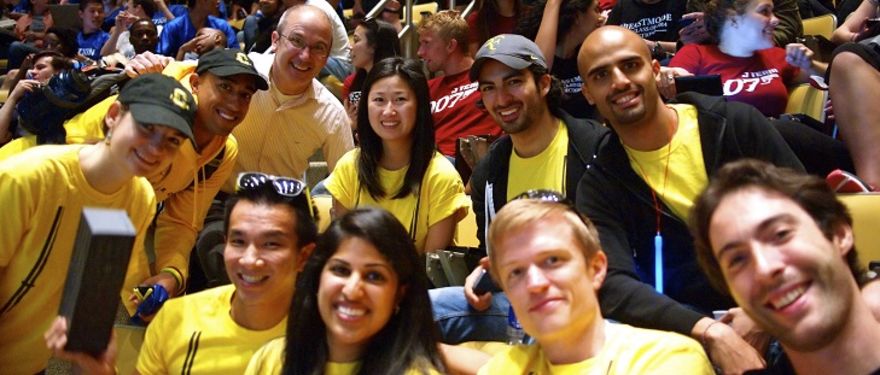By the time I joined HBS, I had all kinds of assumptions of what my experience would look like, shaped by casual conversation over the years or based on what I had read in the media. By the time I finished, I came away with some life-changing experiences that took me by surprise and definitely challenged my conventional views of HBS. Here are a few of the things I learned during my time at HBS.
1. Don’t network
It is common shared wisdom that a primary benefit of business school is the networking that takes place during the two years. In my mind, I had images of many happy hours when I would frenetically try to meet as many people as possible. During our first few days on campus, Director of Admissions Dee Leopold urged my class not to network – i.e., don’t fixate on developing a large rolodex of contacts but rather develop deep and meaningful relationships.
Over the two years, I moved past the awkward introductions into shared stories. I learned that the most interesting aspects about a person, perhaps the things that will truly cause them to change the world, are rarely found in their resume. One of my favorite demonstrations of this was “myTake,” an event where students would share their stories with the class. From overcoming the challenges of blindness to participation in the Olympics, all of these varied and inspiring experiences were within the HBS community. I had my own myTake, where I shared how my character was shaped by living and working in Abu Dhabi as an Indian American expatriate. I found that the best aspects of my classmates were not necessarily what they had done - but who they were becoming.
2. Worldview matters
I thought HBS would teach me to become a business leader by arming me with an impressive toolkit of frameworks, tactics and case studies. I never expected the school to care so much about my values. For example, in Leadership & Organizational Behavior (LEAD), a first year Required Curriculum course on how managers become effective leaders, we spent a class discussing select reflections of alumni at their 30 Year Reunion. What happened to those who seemed to “have it all” yet were fixated on their broken family relationships? What did we envision for our lives and how would we prioritize among competing interests as we move forward in our careers? Authentic leadership, it seemed, required an integration of our whole selves to be successful – our values, our priorities, our personal lives, and our passions.
Another example was student-led. The Joint Committee on Diversity organized a program called “HBS Speaks,” a series of monologues about different identities at HBS by faith, race, gender, and sexuality. A playwright conducted actual interviews with HBS students to create a single character for each identity group and monologue for a stage play, to be shared with the HBS community. These viewpoints, as shared through a play, deeply touched me as I heard minority voices speak out on their hopes and very real struggles against conformity, even in an environment as diverse as HBS. Events like these showed me how much I should treasure my own diversity and unique background because these were the passions that would fuel me to make a difference.
3. Shareholder value
isn’t the only kind of value creation
Given my finance background in real estate private equity, I believed
strongly in the power of investing to transform cities and communities.
However, I had it drummed into me that the shareholder was the most important
stakeholder. In Leadership and Corporate Accountability (LCA), we examined the
legal and historical framework that is actually far more favorable to all
stakeholders.
We did case studies on companies that made some tough decisions regarding its shareholders versus employers and customers, and I appreciated perspective from my international classmates of how their countries (such as Germany) approached the prioritization of different stakeholders. It was a good example of how there are few “pat” answers at HBS and true change can come from challenging deeply held assumptions.
4. Everyone has different takeaways
And perhaps the biggest surprise of all – with all 900+ students studying the exact same case studies for our entire first year, you would think that our learnings would very similar. However, ask each student about his/her takeaways from HBS and you will get 900+ different answers.
I’m so grateful for what I learned from my professors and classmates, but I’m even more grateful that the experience leaves lots of room for personal development and a richness of perspective that is as diverse as the community itself.

